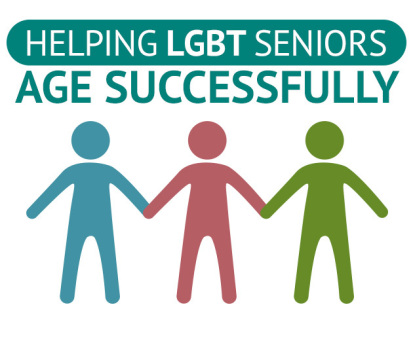
But what about those seniors who are denied access to or face insensitivity from the very people who can help them with that transition? Members of the lesbian, gay, bisexual and transgender (LGBT) community may face a range of discrimination in their quest for health care and housing.
There are an estimated 1 to 3 million LGBT Americans age 65 or older, with that number expected to grow to 2 to 6 million by the year 2030 according to the LGBT Aging Project.
In the past, LGBT seniors simply stayed in the shadows.
“Their most successful survival strategies were to remain invisible and secretive, and to distrust the mainstream institutions that many heterosexual people assume are in place to help them,” says the website.
Today, that’s no longer the case. Organizations such as the LGBT Aging Project and the National Resource Center on LGBT Aging are fighting to end discrimination against members of the LGBT senior community.
One of the most important components of that mission is sensitivity training for caregivers and others close to LGBT seniors.
Properly implemented, sensitivity training can include working respectfully with “families of choice,” in addition to “families of origin.” (That is, support persons in the lives of the LGBT seniors who are not relatives.) Understanding the needs and feelings of LGBT seniors with regard to the vocabulary surrounding sexual orientation and gender expression is crucial, as is intentionally creating an environment of inclusion in all facets of care.
These steps can help decrease feelings of isolation and depression, as well as help LGBT seniors age successfully.
Since its inception, United Church Homes has been a leader in the fight against discrimination and has worked to offer a culture of safety and welcome for all seniors. On May 10, the company expanded its hiring, admissions and care policy nondiscrimination statements to include gender identity and expression. The official move reflects the longstanding United Church Homes mission.
As part of that commitment, United Church Homes will partner with SAGE (Services and Advocacy for Gay, Lesbian, Bisexual and Transgender Elders), a national resource center charged with improving the quality of services and supports offered to seniors in the LGBT community.
Sensitivity training will be provided for all team members of United Church Homes’ communities. That means LGBT seniors who are a part of United Church Homes will have one less thing to worry about and one more thing to celebrate.
“Any type of discrimination in our communities is unacceptable to us,” says the Rev. Kenneth Daniel, president and CEO of United Church Homes. “Being open and affirming of all residents is one of our core values.”
